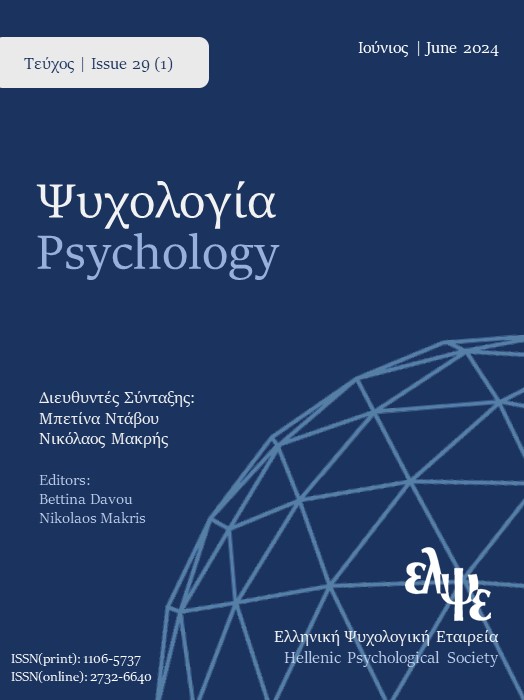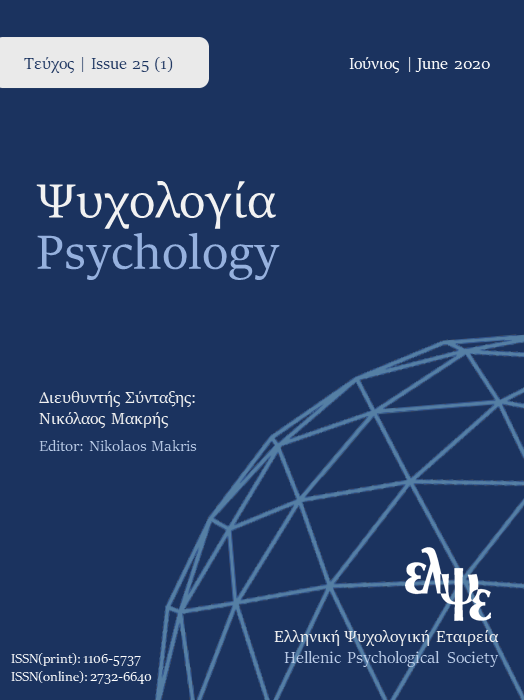Reliability and validity of the Greek version of the Short Gratitude Resentment and Appreciation Test (S-GRAT-GR)

Abstract
Gratitude is a psychological notion that has been associated with numerous beneficial outcomes for individuals and communities. The Short Gratitude Resentment and Appreciation Test (S-GRAT), one of the most widely used measure to detect trait gratitude, comprises three subscales that assess lack of a sense of deprivation, appreciation for simple pleasures, and appreciation of others. The present study tested the psychometric properties of the Greek version of the S-GRAT scale. Using a sample of 681 adults from the general population and a smaller separate sample of fifty individuals we found that the scale demonstrated good internal consistency and high test-retest reliability. Explanatory and confirmatory factor analyses confirmed the original three-dimensional scale structure. Convergent and discriminant validity tests found S-GRAT-Gr total score was significantly correlated with Agreeableness, Intellect, Extraversion, Emotional Stability and Conscientiousness. S-GRAT-Gr also had positive correlations with the Gratitude Questionnaire (GQ-6), the Subjective Happiness Scale and the Satisfaction With Life Scale. S-GRAT-Gr score was found to have a unique impact on Life Satisfaction and Happiness beyond the basic taxonomies of personality and also beyond the GQ-6. Results indicate that the Greek version of the Revised Short Gratitude, Resentment, and Appreciation Test (S-GRAT-Gr) is a reliable and valid instrument for assessing dispositional gratitude in the Greek context.
Article Details
- How to Cite
-
Kargakou, A., Kafetsios, K., Stamatopoulou , M., Prezerakos , P., & Rojas Gil, A. P. (2024). Reliability and validity of the Greek version of the Short Gratitude Resentment and Appreciation Test (S-GRAT-GR). Psychology: The Journal of the Hellenic Psychological Society, 29(1), 151–176. https://doi.org/10.12681/psy_hps.33460
- Section
- RESEARCH PAPERS

This work is licensed under a Creative Commons Attribution-ShareAlike 4.0 International License.
The journal PSYCHOLOGY adopts a Platinum open-access policy. Submission, processing or publication costs are waived by the Hellenic Psychological Society. Papers published in the journal PSYCHOLOGY are licensed under a 'Creative Commons Attribution-ShareAlike 4.0 International' licence. The authors reserve the copyright of their work and grant the journal the right of its first publication. Third-party licensees are allowed to use the published paper immediately after publication as they wish, provided they retain the defined by the license copyright formalities, regarding the reference to its author(s) and its initial publication in the journal PSYCHOLOGY. Moreover, any adjusted work should be shared under the same reuse rights, so with the same CC license.



